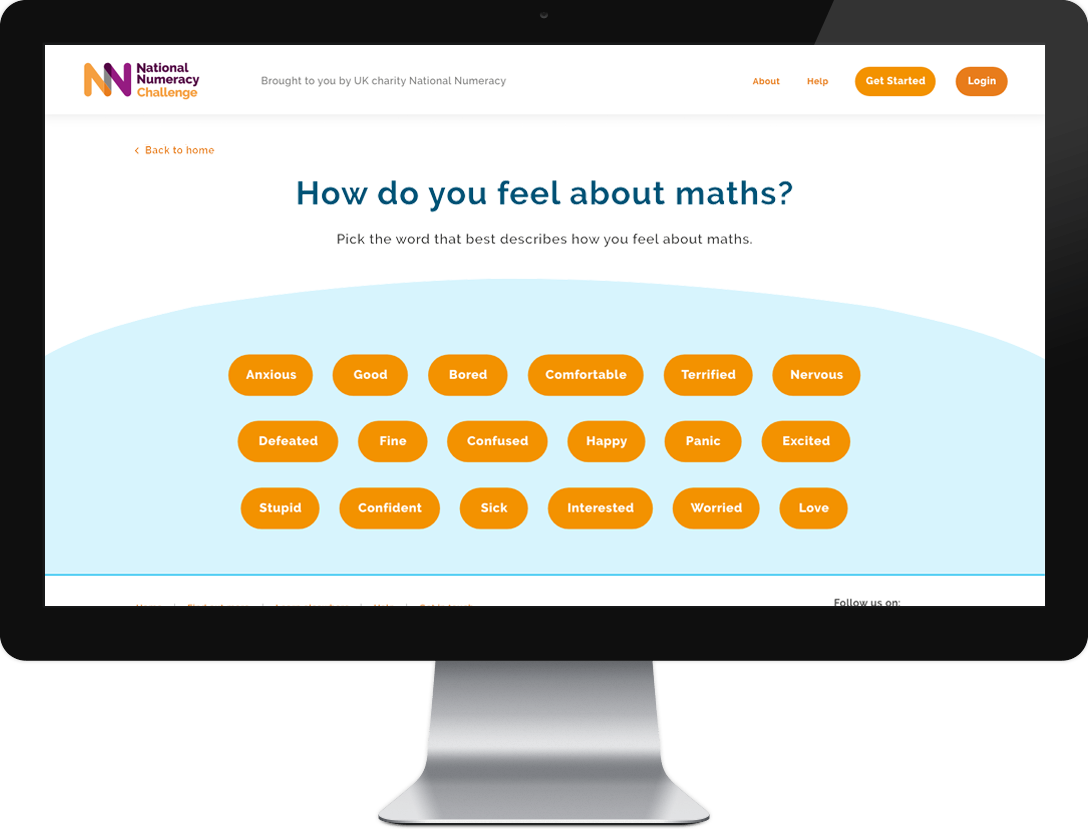We need a ‘cradle to career’ vision for numeracy in the UK
Independent charity National Numeracy welcomes Prime Minister Rishi Sunak’s expected speech today in which he is due to set out his intent to alter the UK’s ‘anti-maths mindset’. We believe his vision needs to widen from its current focus on 16 to 18 year-olds.
Sam Sims, Chief Executive of National Numeracy said: “Addressing poor numeracy needs to start much earlier than 16. We need a ‘cradle to career’ vision for numeracy in the UK focussing on maths in real life.
“Changing the 'can't do maths' mindset is a massive undertaking that must involve adults and children, starting from our earliest experiences. It will require reform across the entire formal learning journey, not just from 16.
GCSE maths sets many up to fail
“In our charity’s decade of experience of supporting adults and children with poor numeracy, we know that confidence is already damaged, and minds are already set against maths by GCSE.
“The current norm-referenced design of GCSEs maths, means that hundreds of thousands of young people are required to fail every year. For very understandable reasons, these young people typically emerge demoralised, fearful and anxious when it comes to maths, and wanting to avoid it in future at any cost.
“So, enforcing more classroom maths for those people already scarred by their experience may compound the problem.
New research links number confidence and social mobility
“Our new research, published later this week, shows number confidence is an essential driver of social mobility. Widespread acknowledgement and improvement are required in the ‘whole life’ learning journey from the early years and primary education, right into adulthood.
“So we believe a much more radical overhaul is needed and that the ‘fundamental change’ our education system needs begins a lot earlier than 16 to 18.
“Building confidence with numbers from an early age and establishing a belief that every one of us can improve our skills, is key to addressing the issue of low numeracy.
“Therefore, while we welcome young people studying some form of maths up to 18, we must ensure it helps build confidence and reflects the maths we need in our everyday lives.”
Improve your everyday maths skills with the National Numeracy Challenge
30% of school-leavers feel anxious about using maths and numbers
The UK’s numeracy levels are significantly below the average for developed countries. 49% of the UK’s working-age population have the expected numeracy levels of a primary school leaver.
30% of school-leavers (18–24s) feel anxious about using maths and numbers – meaning millions of children lack number confidence and those starting out on their careers are already at a disadvantage. Meanwhile, poor numeracy costs the UK economy up to £25 billion a year. But crucially this is changeable.
The practical use of numbers in everyday life is key
The confidence to understand and work with numbers, allied with the practical use of numbers in everyday day life, should form a central pillar of mathematical learning in the UK.
Numeracy is relevant and valuable to all our lives. It helps us to navigate the world around us, make informed decisions and access opportunities. It is a powerful driver of social mobility. But when it comes to numeracy, too many people are too often left behind.
It’s an affront to our society that hundreds of thousands of young people leave school every year feeling negative and fearful about numbers. Low levels of numeracy skills and number confidence are holding individuals, families, communities, and society back.
With a decade of experience, at National Numeracy we know that creating a more positive mindset across society about the importance and value of numbers and maths in everyday life is at the heart of addressing low numeracy.
National Numeracy Leadership Council brings business, experts and government together
National Numeracy has joined forced with the government and a pioneering group of organisations to tackle the UK’s numeracy crisis, by forming the National Numeracy Leadership Council.
The Council, formed in 2022, is chaired by Andy Haldane, Chief Executive of the RSA and previously Chief Economist at the Bank of England.






